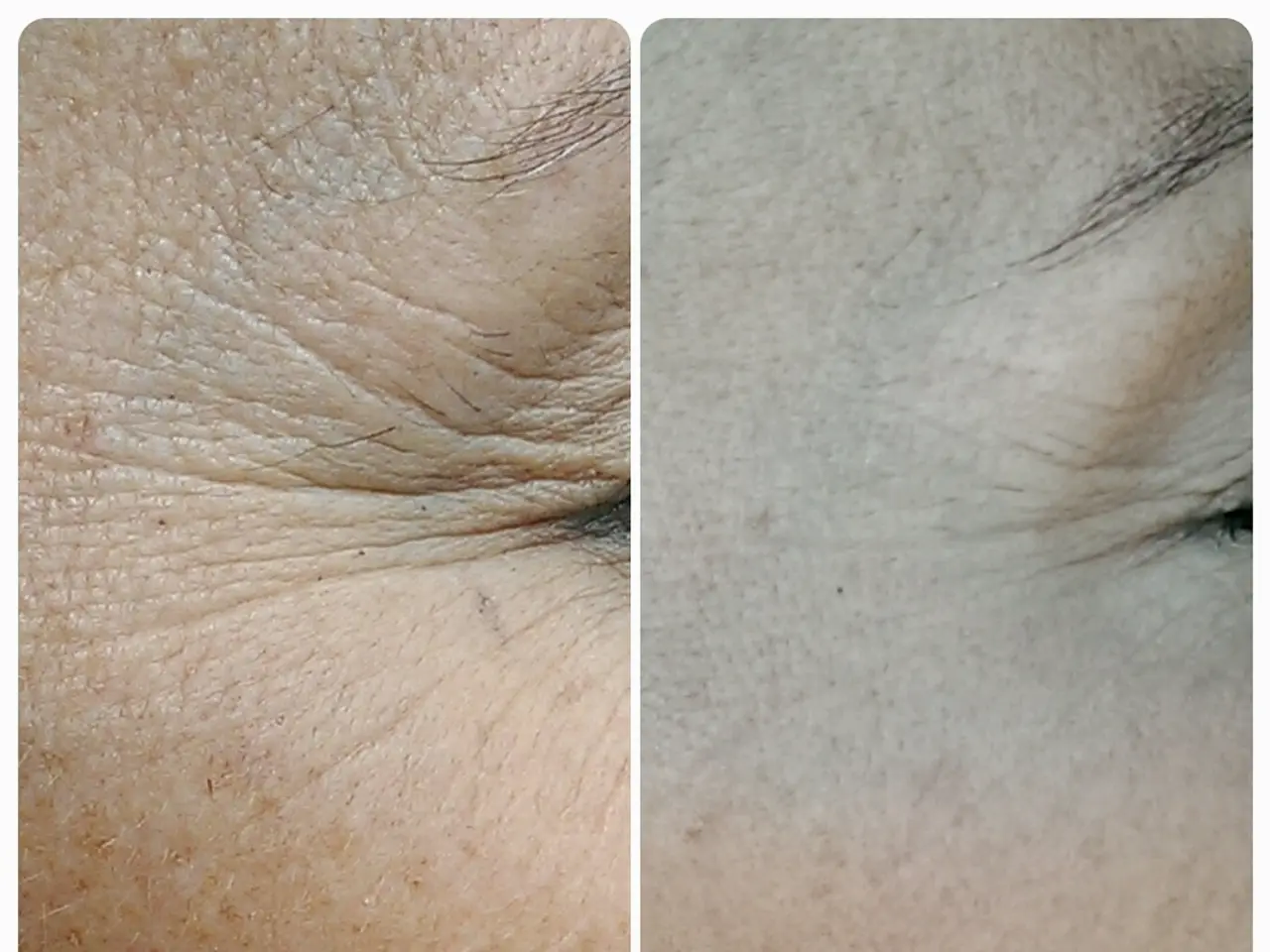Face Serum Explained: A Concentrated Liquid Solution Perfected for Skincare
In the realm of skincare, face serums have emerged as powerful allies, delivering a concentrated dose of active ingredients to target specific concerns. For those grappling with acne-prone skin, the right serum can work wonders, offering a solution that's both effective and gentle.
The Power of Serums
Unlike moisturizers or creams, serums are designed to penetrate deeper into the skin. This makes them ideal for addressing acne-prone skin, as they can deliver a potent blend of active ingredients directly where they're needed.
Choosing the Right Serum
For acne-prone skin, the ideal serum should control oil, reduce inflammation, unclog pores, and promote skin healing without causing irritation. Here are some key ingredients to look for:
- Niacinamide: This ingredient regulates oil production, minimizes pores, soothes redness, and strengthens the skin barrier. It's suitable for daily use and works well with other acne treatments.
- Salicylic Acid (BHA): This ingredient penetrates pores to dissolve oil and dead skin cells, effectively preventing blackheads and whiteheads.
- Azelaic Acid: With antibacterial properties, azelaic acid reduces inflammation and redness, helping clear acne.
- Retinol (Vitamin A): Retinol speeds up cell turnover, preventing clogged pores and improving skin texture. However, it should be introduced gradually to avoid irritation.
- Vitamin C: This vitamin fades dark spots and supports collagen to heal acne scars.
- Tea Tree Oil Extract: A natural antibacterial, tea tree oil reduces active pimples.
- Centella Asiatica (Cica): This ingredient soothes irritated skin and assists in repairing acne damage.
Top-Rated Serums for Acne-Prone Skin
- Niacinamide 10% Serum: Often paired with zinc, this serum controls oil and minimizes pores, improves skin tone, and reduces acne scars.
- Serums with AHA, BHA, and PHA: These serums gently exfoliate dead cells, clear pores, reduce redness, and balance oil production, making them suitable for oily and acne-prone skin.
- Hydrating serums with hyaluronic acid and vitamin B5: These serums maintain moisture without clogging pores.
- K-Beauty serums combining propolis and niacinamide: These serums soothe inflammation and nourish sensitive acne-prone skin.
- Retinol serums: These serums, particularly those with lower concentrations, improve skin texture and prevent breakouts.
Applying Your Serum
To get the best results, apply your serum on clean skin before your moisturizer. Start by introducing the serum gradually (2–3 times per week initially if new). It's also crucial to pair your serum with daily sunscreen, especially if it contains exfoliants or retinoids.
Caring for Your Skin
To minimize the chances of side effects, do a patch test, start with a lower concentration, introduce the serum slowly, follow with moisturizer, monitor your skin, and consider reducing the frequency of use or switching to a milder serum if you notice persistent irritation or breakouts.
In conclusion, the best types of face serums for acne-prone skin focus on niacinamide, salicylic acid, retinol, azelaic acid, and hydrating agents like hyaluronic acid, combined in formulations designed to exfoliate, calm, hydrate, and protect without causing irritation or pore blockage. For oily skin, look for a lightweight serum with ingredients like niacinamide and salicylic acid. Exfoliating serums are your go-to for revealing smoother, brighter skin. Acne-fighting serums are formulated to target breakouts and prevent future blemishes. Face serums can improve skin texture by smoothing and refining it, reduce signs of aging such as fine lines and wrinkles, provide deep hydration, brighten complexion, minimize pores, and improve skin tone.




